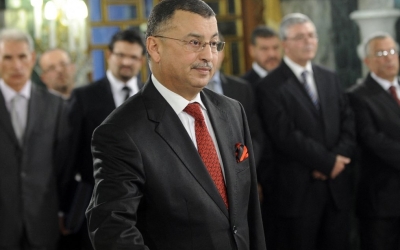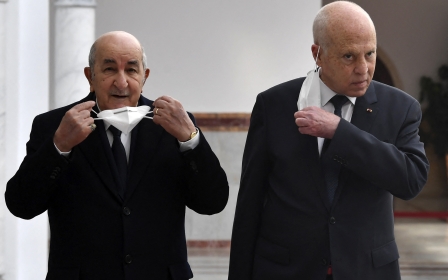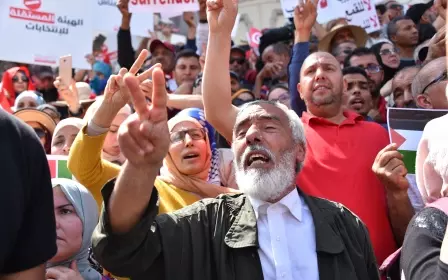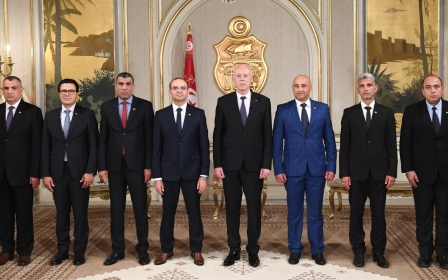Tunisia: President Kais Saied fires 57 judges over corruption claims
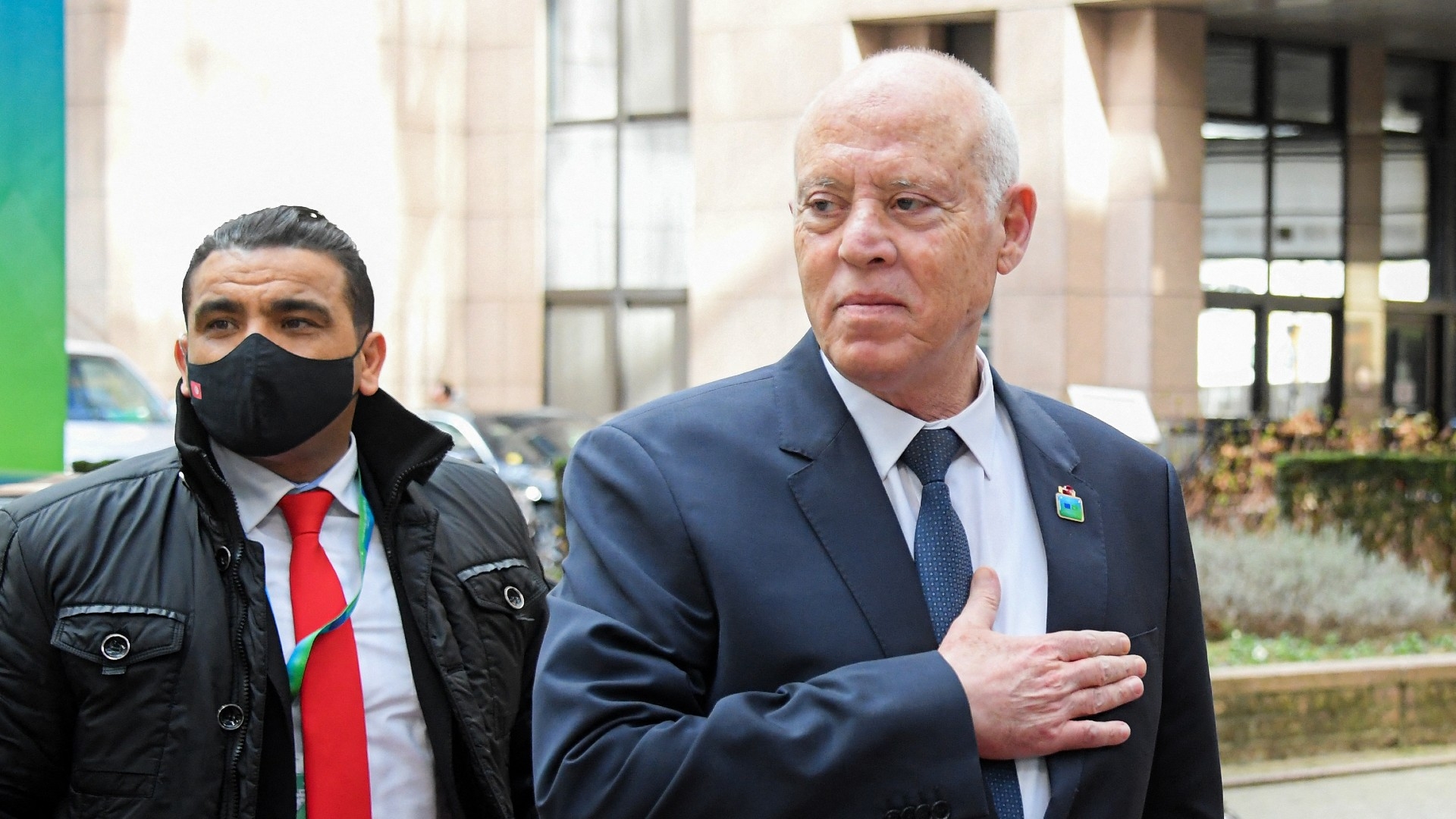
Tunisia's President Kais Saied has fired 57 judges after accusing them of corruption and protecting "terrorists".
Among the judges fired was Youssef Bouzaker, the former head of the Supreme Judicial Council, which the president dissolved in February.
Bachir Akremi, accused by some of interfering in cases against the leading Ennahda party - something both the party and Akremi have denied - was also among those sacked.
The president said during a televised address on Thursday that he had "given opportunity after opportunity and warning after warning to the judiciary to purify itself".
Saied, who also replaced the independent electoral commission, said he would introduce a new constitution that would be put to a referendum next month.
The judicial council had acted as the main guarantor of the independence of the country's legal system since Tunisia's 2011 revolution, which saw the overthrow of longtime ruler Zine el Abidine Ben Ali.
Saied's changes prompted accusations he was interfering in the judicial process.
On 25 July, Saied announced a set of controversial measures, revealed by Middle East Eye two months earlier, including the suspension of parliament and the prime minister's sacking, which were denounced as a coup by rights groups and opposition parties.
Saied shut down the country's independent anti-corruption authority and sidelined the national election authority.
Later he dissolved the Supreme Judicial Council and granted himself control over the selection and promotion of judges.
Saied claimed his actions were needed to save the country from crisis and his intervention initially appeared to win public support after years of economic struggle, corruption and political paralysis.
However, as Tunisia's economy is still failing and public finances are in crisis, Saied now faces the prospect of public anger over the possibility of high inflation, unemployment and declining public services.
The UGTT, Tunisia's powerful labour union, announced this week that public sector workers would go on strike on 16 June, posing potentially the most significant direct challenge to Saied's power grab so far.
Middle East Eye propose une couverture et une analyse indépendantes et incomparables du Moyen-Orient, de l’Afrique du Nord et d’autres régions du monde. Pour en savoir plus sur la reprise de ce contenu et les frais qui s’appliquent, veuillez remplir ce formulaire [en anglais]. Pour en savoir plus sur MEE, cliquez ici [en anglais].


